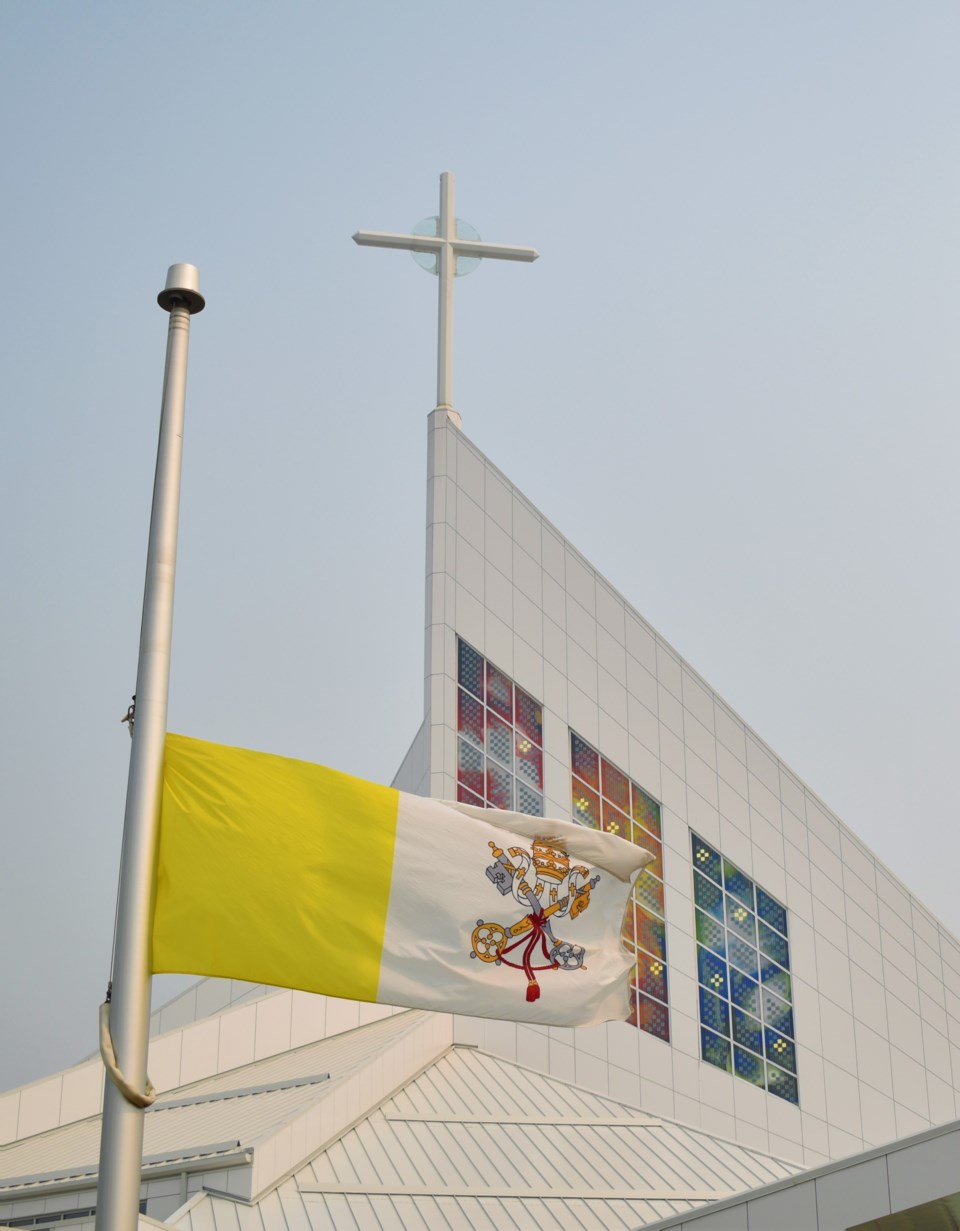SASKATOON — Representatives of Indigenous communities in Canada will begin their journey to cross the Atlantic to attend a historic meeting with Pope Francis in Vatican City. The delegates — composed of 32 Elders, Knowledge Keepers, residential school survivors and youth — will leave on Saturday.
The delegation will include the Canada Conference of Catholic Bishops president Rev. Raymond Poisson, vice president Rev. William T. McGrattan, Edmonton Archbishop Rev. Richard Smith, Archbishop of Regina Rev. Donald Bolen, Winnipeg Archbishop Rev. Richard Gagnon and Churchill-Hudson Bay Diocese Bishop Rev. Anthony Krótki.
“As Canadian Bishops, we are grateful to these delegates for walking with us on this journey and to Pope Francis for his attention to their suffering and his deeply-held commitment to social justice,” said Poisson.
The CCCB statement said the bishops have led the planning efforts and detailed arrangements of the meeting, with Krótki accompanying Inuit delegates to Rome.
The representatives were selected with the help of the Assembly of First Nations, the Inuit Tapiriit Kanatami and the Métis National Council. Most of those chosen are engaged in their journey to healing based on the trauma they experienced attending residential schools and the direct impact of colonialism.
Phyllis Googoo, a residential school survivor, will be joining former Truth and Reconciliation Commissioner Chief Wilton Littlechild as part of the AFN delegation. In an interview with the Catholic Register, she said that she waited for more than 60 years to get the chance to share with Pope Francis her experience attending the Shubenacadie Indian Residential School in Nova Scotia.
“We get better, as survivors. Among the AFN, we meet once in a while. Our stories are so sad. When we first met, it was mostly crying. It was hard,” said Googoo, who was taken from her mother when she was four years old to attend the residential school.
She even witnessed the physical abuse experienced by her brother, to the extent where she failed to recognize him due to his face being severely swollen and bruised.
Representatives of the Indigenous delegation will have separate meetings with Pope Francis, starting with the Métis delegates having a private encounter with the pontiff at 10 a.m. on March 28.
Inuit delegates will get the chance to talk to the Holy Father at 11 a.m. on the same day, while the First Nations representatives will meet with the pope at 10:30 a.m. on March 31. Media briefings will follow each meeting in the afternoons.
Bishop Poisson said they are expecting the meeting between representatives of the AFN, Inuit and Métis delegation with Pope Francis to be "meaningful."
“We expect that these private encounters will allow the Holy Father to meaningfully address both the ongoing trauma and legacy of suffering faced by Indigenous Peoples to this day, as well as the role of the Catholic Church in the residential school system, which contributed to the suppression of Indigenous languages, culture and spirituality,” said Poisson.
The week-long trip will end with a final audience with Pope Francis on April 1 at noon with the official AFN, Inuit and Métis representatives joining the entire Canadian delegation of Indigenous Peoples, where the pontiff will publicly respond after listening to the stories of the delegates.




